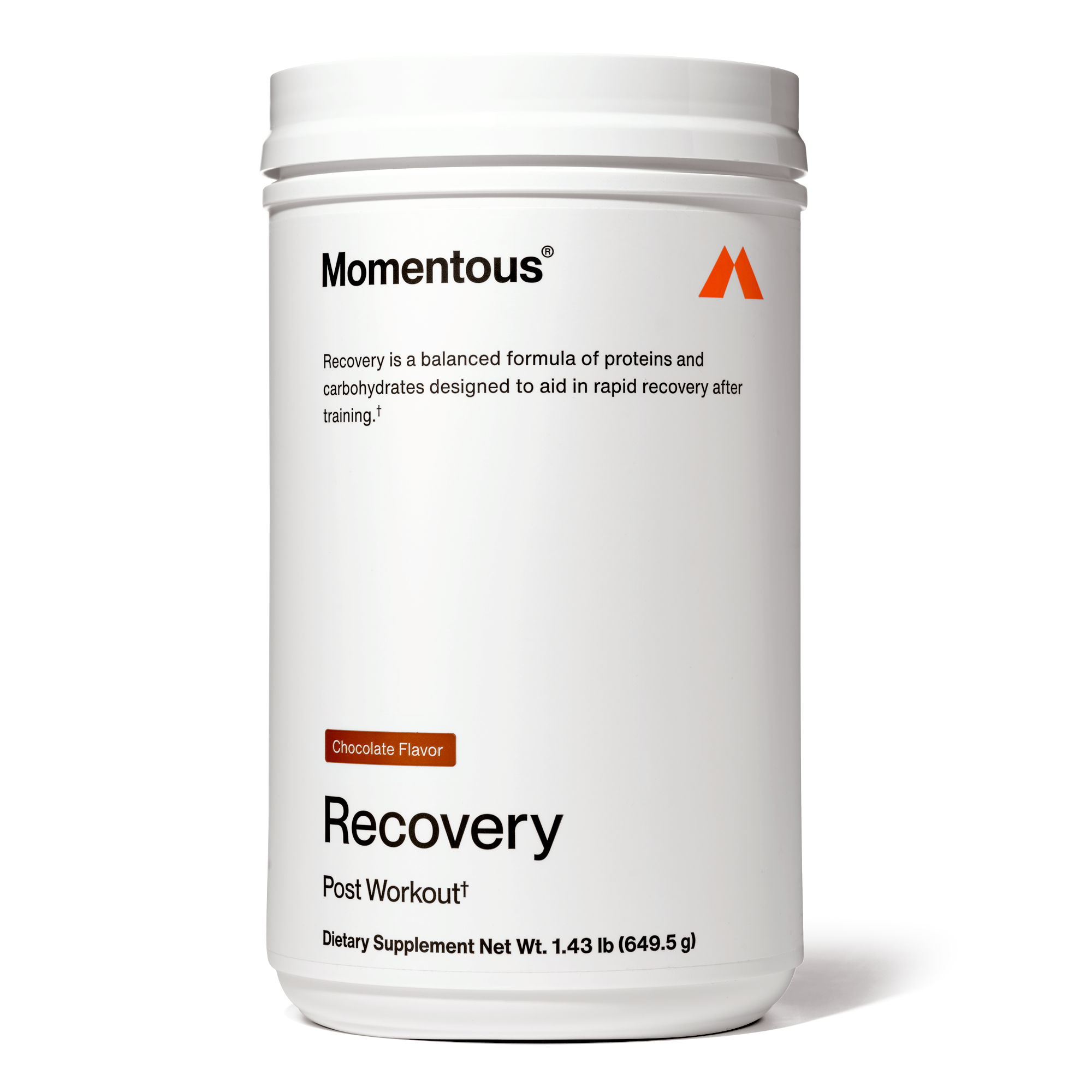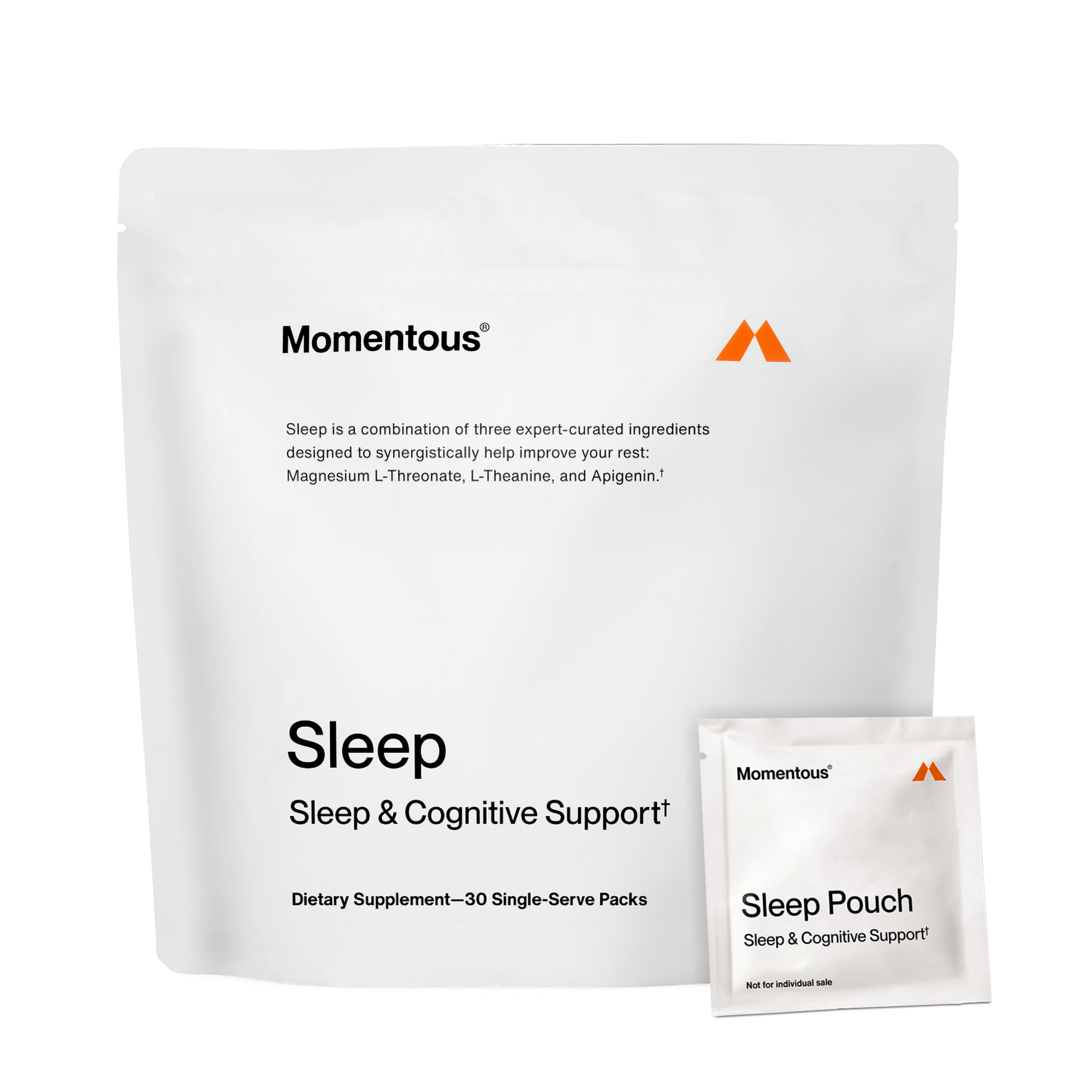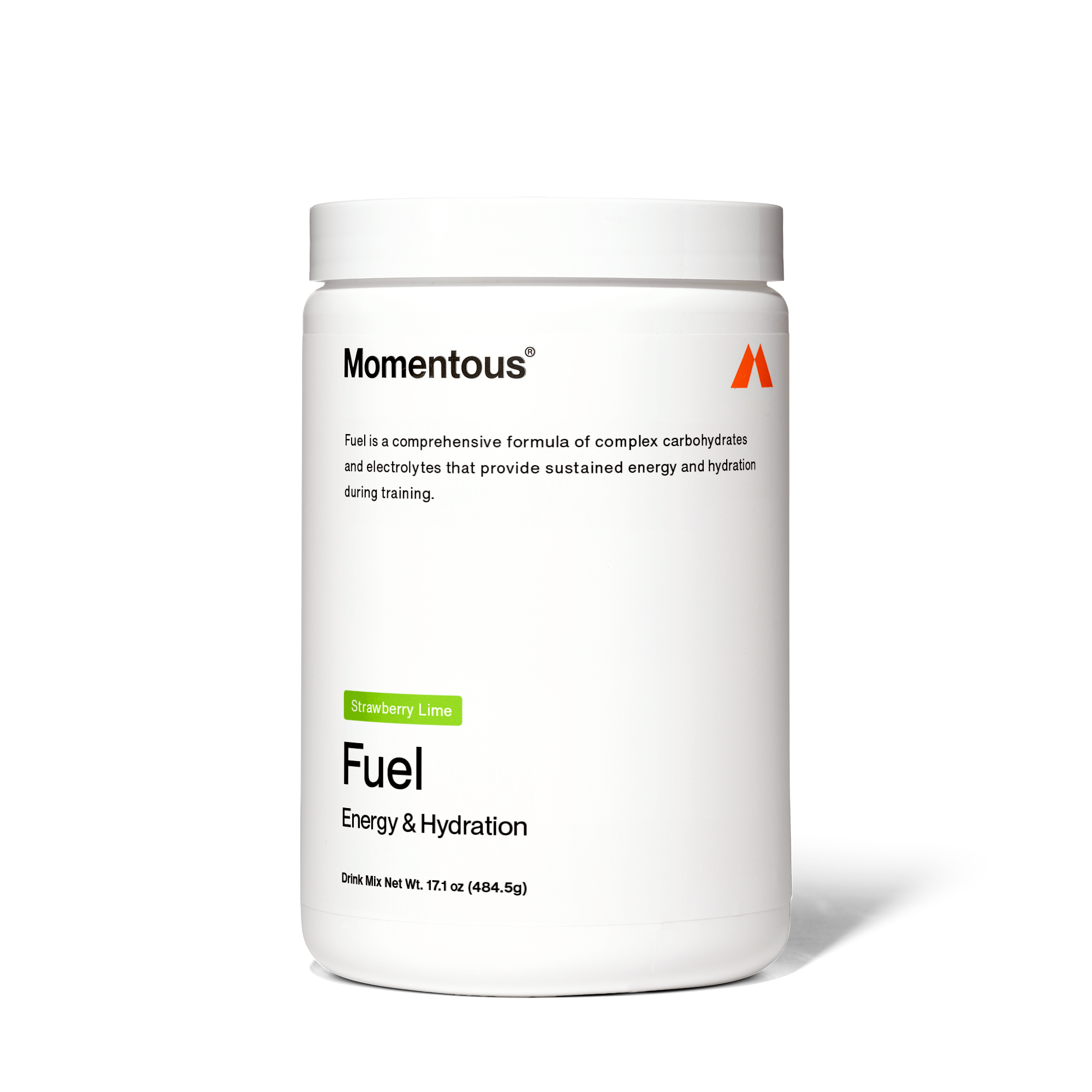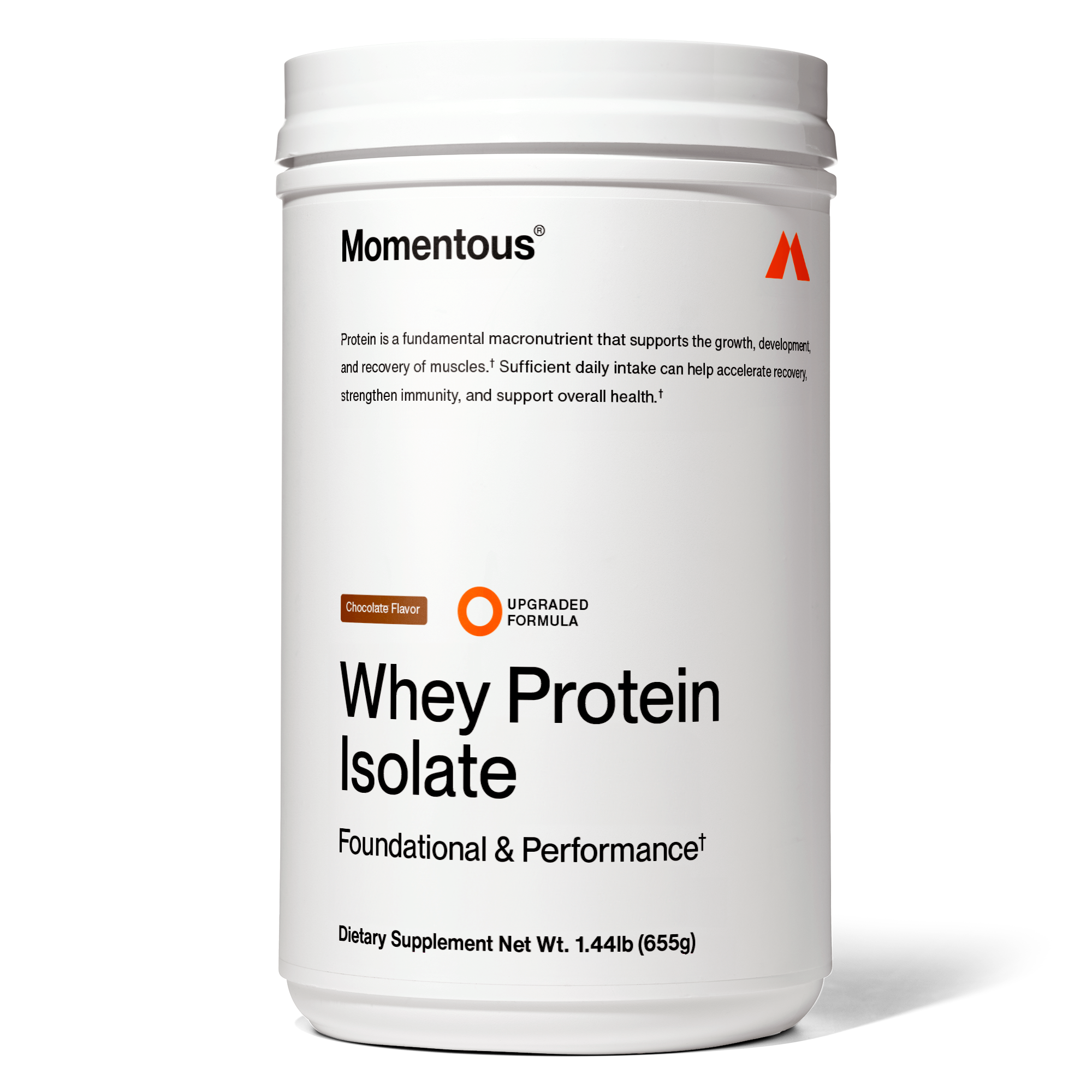Athletic Performance, Muscle Recovery
A science-backed blend to help optimize your nightly rest
Muscle Performance, Muscle Recovery
20g of grass-fed whey protein isolate per serving for performance + recovery
As spring blossoms and the weather starts to warm up, it's hard not to feel the excitement of getting outside for some much-needed fresh air and physical activity. This time of year, many of us find ourselves drawn to running – a great way to strengthen our muscles and give our cardiovascular fitness a serious boost. Whether you're considering running a marathon or simply thinking about getting into running for the first time, it's important to have a plan. Jumping into running without proper preparation can lead to serious injury, quick burnout, and under performance. To help you confidently tackle any running challenge, here are some actionable, science-backed tips and advice for beginners and seasoned runners alike.
10 Science-Backed Tips on Prepping for Any Running Challenge
1). Start With A Training Plan
Before you start training, you need to have a plan that fits your fitness level and running goals. A training plan should include a mix of long runs, tempo runs, speed workouts, and recovery runs to help you build endurance, speed, and strength to set you up for long term success. Research shows that following a structured training plan can reduce the risk of injury, lowering the chances of a major setback early in your training (1).
2). Warm-Up Properly
A proper warm-up is essential to prevent injury and improve performance. Start with a light jog to get your heart rate up. Follow that up with some dynamic stretching and strides, making sure to address any areas of your body that are traditional trouble spots. A study published in the Journal of Sports Sciences found that dynamic stretching can improve running performance (2). By moving your joints and muscles through their full range of motion, these functional and sport-specific movements help increase your muscle temperature and decrease muscle stiffness.
3). Increase Mileage Gradually
Gradual mileage increases are crucial in preventing injury and building endurance. Aim to increase your mileage by no more than 10% per week. According to a study published in the Journal of Orthopaedic & Sports Physical Therapy, a 10% weekly increase in running volume is associated with a reduced risk of running-related injuries (3). You don't have to run a whole marathon on your first day – instead, take it one step at a time.
4). Incorporate Cross-Training
Cross-training activities such as swimming, cycling, or yoga can help prevent overuse injuries, build strength, and improve flexibility. Research shows that incorporating cross-training reduced the risk of injury among long-distance runners (4). Find ways to strengthen your glutes, hip flexors and core muscles to improve your running and minimize post-run soreness.
5). Focus on Proper Nutrition
Eating a balanced diet is critical for optimal performance. While carbohydrates are often preached as the major fuel source for runners, many runners neglect to consume enough protein. You'll need it to help muscle recovery and growth and reduce your muscle soreness. Momentous Recovery can be a convenient way to meet both your carb and protein needs in a single scoop.
6). Hydrate Properly
Staying hydrated is essential for both training and racing. Drink water regularly throughout the day. How much? Momentous partner Dr. Andrew Huberman says the average suggestion is 8oz per waking hour for the first 10 hours of the day. Then 5oz per hour thereafter. Those numbers should be even higher if you're running in high heat. Consider adding Momentous Fuel to your water before you take off for a long run. Fuel helps to replenish electrolytes and provides easy-to-digest carbohydrates for sustained energy.
7). Rest and Recovery
The running experience isn't just about the distance covered; it's also about the actions and routines you engage in between each run. Getting enough rest and recovery is necessary for preventing injuries and improving your performance. Make sure to incorporate rest days into your training plan and prioritize proper sleep. If you have a solid nighttime routine but are still having issues getting enough shut-eye, check out our Sleep Pack, which can support your rest and recovery routine.
8). Practice Race-Day Strategies
In the weeks leading up to the race, practice your race-day strategies, including proper pacing, hydration, and nutrition. Having a routine for race day will enhance your feeling of control and confidence, increasing the opportunity for your brain to focus on the right things. This familiarity will help reduce pre-race anxiety and prepare you for anything on race day.
9). Don't Try Anything New on Race Day
Once you know what works for you, it's best to stick with those strategies. Avoid trying anything new on race day that might upset the balance. This includes trying out that fancy new pair of shoes and fresh clothes or disrupting your sleep schedule by staying up later than normal the night before your race.
10). Remember to Have Fun
Running events and races should be enjoyable and rewarding experiences. Remember to have fun and celebrate your accomplishments along the way. With dedication and perseverance, you'll start making major strides in no time!
Whether you're using these tips to crush your next race or to start your running journey, you'll be ready to go the distance.
----
(1) Gabbett, T. J. (2020). Debunking the myths about training load, injury and performance: empirical evidence, hot topics and recommendations for practitioners. British Journal of Sports Medicine, 54(1), 58–66.
(2) Samson, M., Button, D. C., Chaouachi, A., & Behm, D. G. (2012). Effects of dynamic and static stretching within general and activity specific warm-up protocols. Journal of Sports Science & Medicine, 11(2), 279–285.
(3) Nielsen, R. Ø., Parner, E. T., Nohr, E. A., Sørensen, H., Lind, M., & Rasmussen, S. (2014). Excessive progression in weekly running distance and risk of running-related injuries: an association which varies according to type of injury. The Journal of Orthopaedic and Sports Physical Therapy, 44(10), 739–747.
(4) Paquette, M. R., Peel, S. A., Smith, R. E., Temme, M., & Dwyer, J. N. (2018). The impact of different cross-training modalities on performance and injury-related variables in high school cross country runners. Journal of Strength and Conditioning Research, 32(6), 1745–1753.















